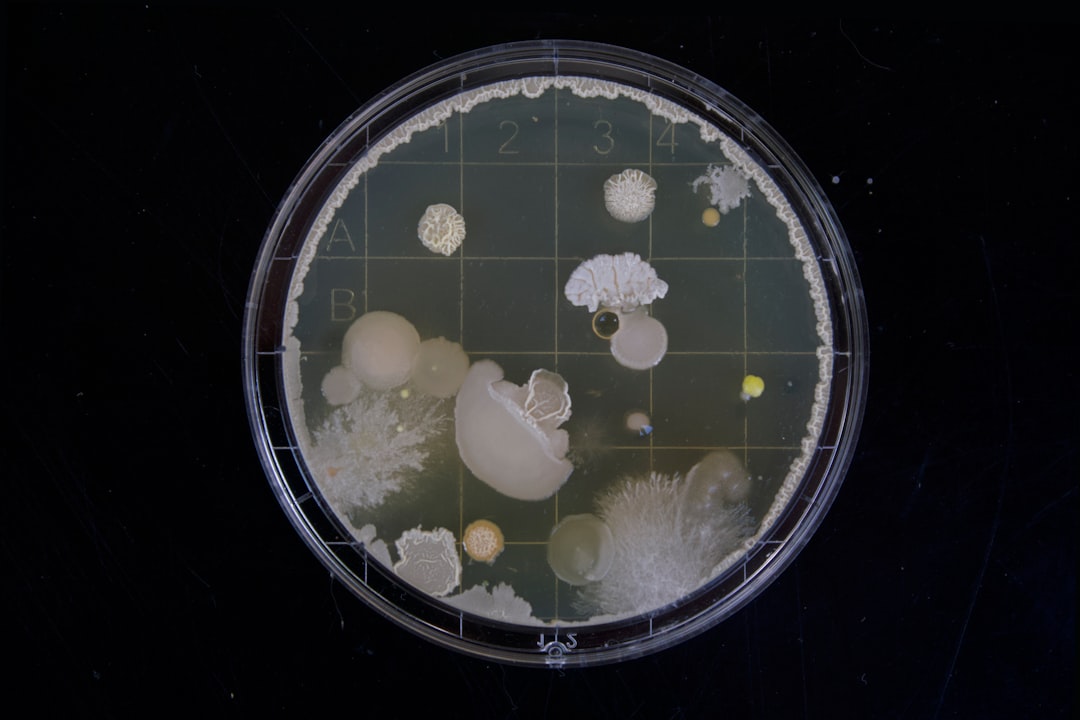Is Your Gut Microbiome Secretly Protecting Your Brain?
Have you ever wondered why some people seem to maintain sharp mental clarity well into their golden years while others experience cognitive decline? The answer might be hiding in an unexpected place – your gut. The growing body of research on the gut microbiome is revealing fascinating connections between our digestive system and brain health that could revolutionize how we approach neurodegenerative diseases.
As someone who’s witnessed family members struggle with conditions like Alzheimer’s, I’ve become increasingly interested in holistic approaches to brain health. What if the path to protecting our most precious organ begins not with brain-specific interventions but with healing our gut? This question has led me down a fascinating rabbit hole of research that I’m excited to share with you today.
The Gut-Brain Connection: More Than Just a Feeling
That “gut feeling” you experience might be more literal than you realize. Your gut microbiome – the vast ecosystem of trillions of bacteria, fungi, and other microorganisms living in your digestive tract – communicates with your brain through multiple pathways, creating what scientists call the “gut-brain axis”.
This communication highway isn’t just responsible for letting you know when you’re hungry; it plays a crucial role in your brain’s development, function, and long-term health. Recent research suggests that imbalances in the gut microbiome may contribute to the development and progression of neurodegenerative diseases such as Alzheimer’s, Parkinson’s, and multiple sclerosis.
“When I first learned about the gut microbiome’s influence on brain health, it completely transformed my understanding of wellness,” shares Dr. Maria Chen, a neurologist who incorporates gut health strategies in her practice. “We’re discovering that many neurological conditions have inflammatory roots that can be traced back to gut dysfunction.”

How Your Gut Microbiome Influences Brain Health
The gut microbiome affects your brain through several mechanisms:
1. Inflammation Regulation: A healthy gut microbiome helps maintain balanced immune responses. When dysbiosis (microbial imbalance) occurs, it can trigger systemic inflammation that reaches the brain, potentially contributing to neurodegenerative processes.
2. Neurotransmitter Production: Believe it or not, your gut bacteria produce neurotransmitters like serotonin, dopamine, and GABA – the same chemicals that regulate your mood, cognition, and overall brain function.
3. Barrier Protection: A healthy gut microbiome maintains the integrity of both the intestinal barrier and the blood-brain barrier, preventing harmful substances from reaching the brain.
4. Metabolite Production: Certain gut bacteria produce beneficial compounds like short-chain fatty acids that nourish brain cells and reduce inflammation.
According to a review published in Science Direct, alterations in gut microbiota composition significantly impact neurological disorders. The gut-brain axis has emerged as a vital pathway in the development and progression of neurodegenerative diseases, making interventions targeting the gut microbiome cutting-edge therapeutic approaches.
The Link Between Gut Health and Neurodegenerative Diseases
Let’s explore how gut health specifically affects some common neurodegenerative conditions:
Alzheimer’s Disease
Research has found distinct differences in the gut microbiome composition of Alzheimer’s patients compared to healthy individuals. These differences correlate with increased inflammation and the accumulation of amyloid plaques – a hallmark of the disease.
“What’s particularly exciting,” notes neurologist Dr. James Wilson, “is that animal studies show that transplanting gut bacteria from healthy subjects to those with Alzheimer’s-like symptoms can reduce plaque formation and improve cognitive function.”
Parkinson’s Disease
The connection between gut health and Parkinson’s is perhaps the most well-established. Studies suggest that Parkinson’s may actually begin in the gut, with the alpha-synuclein protein (which forms toxic clumps in Parkinson’s patients’ brains) first misfolding in the enteric nervous system before traveling to the brain.
Many Parkinson’s patients experience gastrointestinal symptoms like constipation years before motor symptoms appear, further supporting this gut-origin theory.
Multiple Sclerosis
Multiple sclerosis (MS) is an autoimmune condition where the immune system attacks the protective covering of nerve fibers. Research shows that certain gut bacteria can either promote or suppress inflammation in MS, suggesting that microbiome modulation could be a therapeutic target.

Practical Steps to Heal Your Gut Microbiome for Brain Health
The beauty of focusing on gut health is that it’s something you can actively influence through daily choices. Here are science-backed strategies to support your gut microbiome and potentially protect your brain:
1. Embrace Dietary Diversity
“The single most important factor for a healthy gut microbiome is dietary diversity,” explains nutritionist Sarah Johnson. “Different beneficial bacteria thrive on different foods, so variety is key.”
- Aim for 30+ different plant foods weekly
- Include fermented foods like yogurt, kefir, kimchi, and sauerkraut
- Consume prebiotic-rich foods such as garlic, onions, bananas, and asparagus
- Reduce processed foods and added sugars, which disrupt gut microbiota balance
2. Incorporate Regular Physical Activity
Physical exercise doesn’t just benefit your muscles and cardiovascular system – it’s also a powerful modulator of gut health.
- Engage in moderate exercise for at least 150 minutes weekly
- Consider activities like walking, swimming, cycling, or yoga
- Remember that even gardening or dancing counts!
Regular activity helps maintain a healthy gut microbiome and can reduce inflammation, both linked to a lower risk of neurodegenerative diseases.
3. Consider Intermittent Fasting
Research suggests that intermittent fasting or caloric moderation can positively influence gut microbiome composition and promote healthy aging.
- Try the 16:8 method (16 hours fasting, 8 hours eating)
- Or experiment with the 5:2 approach (five days normal eating, two days restricted calories)
- Always consult with a healthcare provider before starting any fasting regimen
4. Manage Stress Effectively
Chronic stress negatively impacts gut microbiome diversity and function, potentially contributing to neuroinflammation.
- Practice mindfulness meditation or deep breathing exercises
- Prioritize quality sleep
- Consider yoga or tai chi, which combine movement with stress reduction
5. Limit Unnecessary Antibiotics
While sometimes necessary, antibiotics can disrupt gut microbiome balance by killing beneficial bacteria alongside harmful ones.
- Only take antibiotics when prescribed and necessary
- Complete the full course as directed
- Consider probiotic supplementation during and after antibiotic treatment (with your doctor’s approval)
The Journey to Brain Health Through Gut Healing
The connection between gut health and neurodegenerative diseases represents a paradigm shift in how we approach brain health. Rather than viewing these conditions as inevitable consequences of aging or purely genetic destiny, we now understand that our daily choices can influence our risk and potentially slow progression even after diagnosis.
For more insights on how environmental factors interplay with this connection, check out The Hidden Environmental Factors Affecting Your Brain.
As with any health journey, consistency is key. Small, sustainable changes to support your gut microbiome can compound over time, potentially offering significant protection for your brain. Remember that healing your gut is not just about preventing disease – it’s about optimizing your overall well-being, energy, and quality of life.
The gut microbiome-brain health connection reminds us that true wellness comes from addressing the body as an interconnected system rather than isolated parts. By nurturing the trillions of microorganisms that call your gut home, you’re not just supporting your digestive health – you’re potentially safeguarding your most precious asset: your mind.
After all, success is not just what you know about health—it’s who you become through the daily practices that support your body and mind for the long journey ahead.
📌 Key Takeaways
> The gut microbiome communicates with the brain through the gut-brain axis, influencing brain health and playing a role in neurodegenerative diseases like Alzheimer’s, Parkinson’s, and multiple sclerosis.
> Supporting a diverse and balanced gut microbiome through diet, exercise, stress management, and mindful antibiotic use can help reduce inflammation and promote brain health.
> Healing and maintaining gut health offers a promising, holistic approach to potentially slow or prevent cognitive decline and improve overall well-being.
> Emerging research shows that gut microbiome modulation may become a cutting-edge therapeutic strategy for neurodegenerative conditions.

